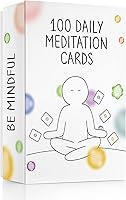Table of Contents
Trapped in a Cycle of Self-Doubt?
In a world that constantly bombards us with unrealistic beauty standards and societal pressures, it’s all too easy to find ourselves trapped in a cycle of self-doubt and low self-esteem. We scrutinize our every flaw, berate ourselves for perceived shortcomings, and shrink in the face of challenges, all the while wondering why we can’t seem to muster the confidence to truly embrace our authentic selves.
But what if we told you that the key to unlocking your inner confidence lies within your grasp? Imagine waking up each day with a deep sense of self-worth, fearlessly pursuing your dreams and aspirations without the weight of self-criticism holding you back. This is the promise of cultivating unshakable self-esteem – a journey of self-discovery and self-acceptance that will forever transform the way you view yourself and your place in the world.
Understanding Self-Esteem
Before we delve into strategies for improving self-esteem, it’s essential to understand what it truly means. Self-esteem is the overall subjective sense of personal worth or value that we hold about ourselves. It’s not just about feeling confident in specific situations but rather a deep-rooted belief in our inherent worth as human beings.
According to research by the American Psychological Association, individuals with healthy self-esteem tend to have better mental health, more positive relationships, and greater resilience in the face of adversity (Source: Apa.org).

Strategies for Cultivating Unshakable Self-Esteem
- Practice Self-Compassion: Instead of endlessly berating yourself for perceived flaws or shortcomings, treat yourself with the same kindness and understanding you would extend to a loved one. Self-compassion involves acknowledging your flaws without harsh judgment and embracing your inherent worth as a human being.
- Challenge Negative Self-Talk: Our inner critic can be our own worst enemy. Whenever you find yourself engaging in negative self-talk, consciously challenge those thoughts with more positive and realistic perspectives. Replace “I’m a failure” with “I’m still learning and growing.”
- Celebrate Your Strengths: Make a list of your unique strengths, talents, and accomplishments, no matter how small they may seem. Regularly review and add to this list, reminding yourself of your inherent worth and capabilities.
- Set Realistic Goals: Unrealistic expectations can quickly erode self-esteem. Instead, set achievable, measurable goals that challenge you while still being attainable. Celebrate your progress along the way, no matter how incremental.
- Surround Yourself with Positivity: The company we keep can significantly impact our self-esteem. Surround yourself with positive, supportive individuals who uplift and encourage you, and distance yourself from toxic relationships that perpetuate self-doubt.
- Practice Self-Care: Taking care of your physical, mental, and emotional well-being is crucial for cultivating self-esteem. Engage in activities that nourish your mind, body, and soul, whether it’s exercise, meditation, or pursuing a creative passion.
- Embrace Your Unique Identity: Celebrate the qualities that make you uniquely you, whether it’s your cultural background, personal interests, or life experiences. Reject societal pressure to conform to narrow standards of beauty or success, and embrace your authentic self.
Remember, building unshakable self-esteem is a journey, not a destination. Be patient, persistent, and embrace setbacks as opportunities for growth and self-discovery.

Whose Opinion Matters Most? Prioritizing Your Inner Voice

One of the biggest threats to healthy self-esteem is the weight we often place on the opinions and perceptions of others. From a young age, we’re conditioned to seek validation from external sources – be it our parents, peers, or society at large.
While input from others can be valuable, basing our self-worth solely on external approval is a surefire path to crippling self-doubt and insecurity. The truth is, no matter how much we may strive for it, we can never truly control how others perceive us. However, we can control how much power we give to those perceptions.
To protect your self-esteem from the vacillating opinions of others, it’s crucial to cultivate a strong internal locus of self-worth. This means basing your sense of value on your own principles, values, and accomplishments, rather than constantly seeking affirmation from external sources.
When you confidently root your self-esteem in your authentic self, the opinions of others become less threatening and more like background noise. Of course, this doesn’t mean disregarding all feedback – constructive criticism from trusted sources can be valuable for growth. But it does mean developing the ability to filter out negative or unhelpful opinions, and trusting your own inner compass as the ultimate arbiter of your worth.
By addressing this common threat to self-esteem head-on, you’ll be better equipped to maintain a healthy sense of self-worth, regardless of what others may think or say about you.
FAQ about Self-Esteem
Why is self-esteem so important?
Self-esteem is crucial because it impacts almost every facet of our lives – our mental and physical health, relationships, career success, and overall wellbeing. Low self-esteem can lead to anxiety, depression, and a host of other issues, while healthy self-esteem fosters resilience, confidence, and a zest for life.
Can self-esteem issues be overcome later in life?
Absolutely. While our self-esteem is shaped from a young age, it’s never too late to work on improving it. With self-awareness, dedication, and the right strategies, anyone can cultivate greater self-worth at any stage of life.
How can I stop being so hard on myself?
Being overly self-critical is a major barrier to healthy self-esteem. To break this cycle, practice self-compassion by treating yourself with the same kindness and understanding you’d offer a loved one. Challenge negative self-talk and replace it with more realistic, encouraging inner dialogues.
How long does it take to improve self-esteem?
There’s no set timeline, as improving self-esteem is an ongoing journey of self-discovery and growth. However, many people start to notice positive shifts in their self-perception and confidence within a few months of consistently implementing self-esteem-boosting strategies.
Can social media impact self-esteem?
Yes, social media can have a significant impact on self-esteem, both positive and negative. While it can connect us to supportive communities, the prevalence of filtered images and curated personas can also breed feelings of inadequacy and low self-worth if consumed in excess.
How can I stop caring so much about what others think?
Develop an internal locus of self-worth by basing your value on your own principles and accomplishments, rather than constantly seeking validation from others. Practice filtering out negative opinions and trust your own inner compass as the ultimate arbiter of your worth.
Is there a difference between self-esteem and self-confidence?
While related, self-esteem and self-confidence are distinct concepts. Self-esteem is your overall sense of self-worth, while self-confidence is the belief in your abilities within specific contexts or situations. Improving self-esteem often leads to greater self-confidence in various areas of life.
Can you point me to some useful additional resources?
Sure, visit the links below in addition to this Econopass article:
– Building Self-Esteem: A Self-Help Guide (Mayo Clinic)
– Improving Self-Esteem (HelpGuide)
– Self-Esteem and Mental Health (Mental Health America)
– More Econopass articles on mental health.

Was this Article Helpful?
We hope that you found this article helpful and informative. We are always striving to provide you with the best content and resources to live better with yourself. We would love to hear from you and get your feedback and suggestions.
Please visit our Facebook page and leave us a comment or a message. Tell us what you liked or disliked about this article, what you learned or want to learn more about, and what you want us to write about next.
Your input is very valuable to us and helps us improve our work. Thank you for reading and supporting us.
#selfesteem #mentalhealth #selfworth #confidence #selflove #mindset #personalgrowth #positivity #selfcare #authenticity




















